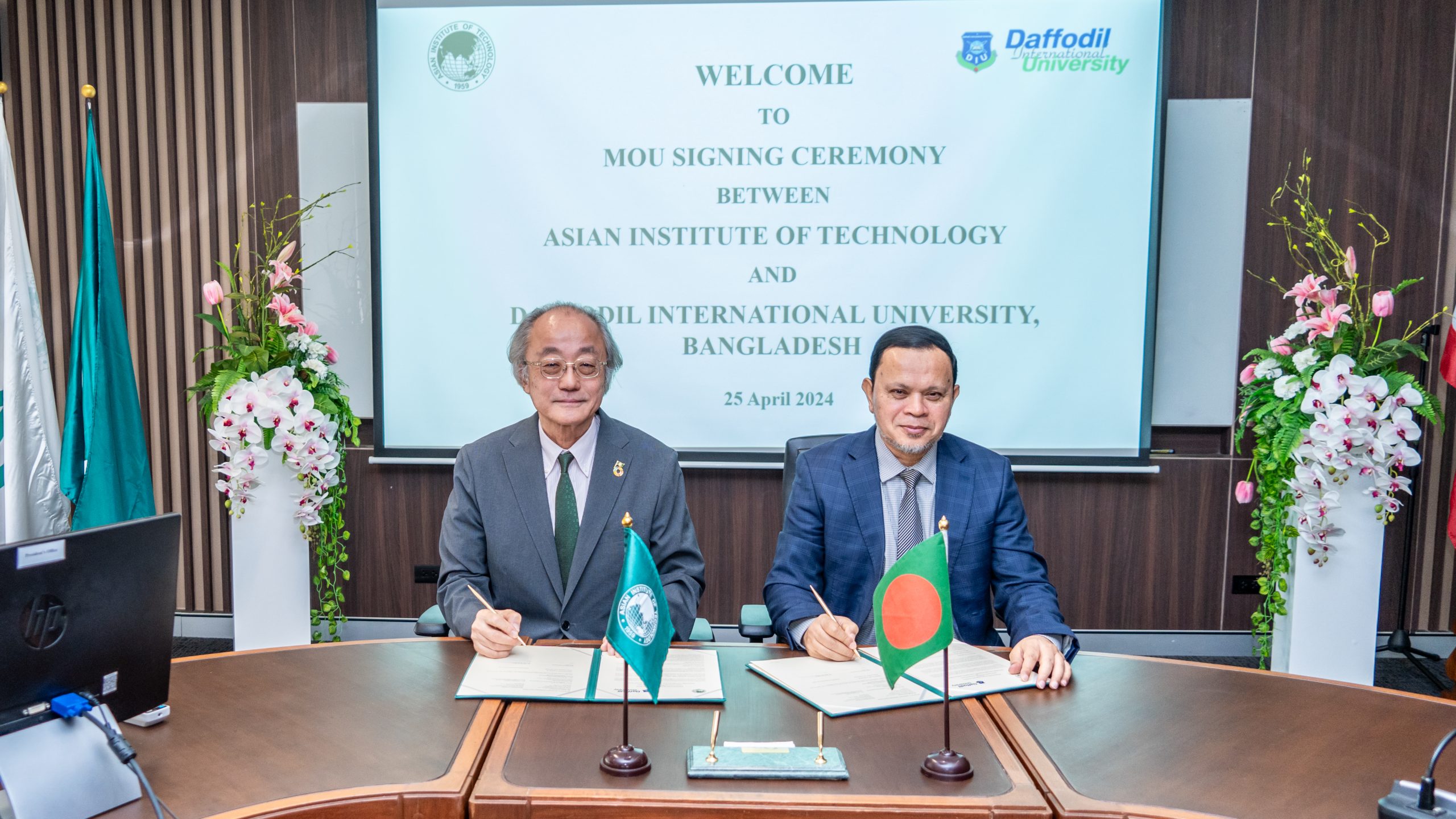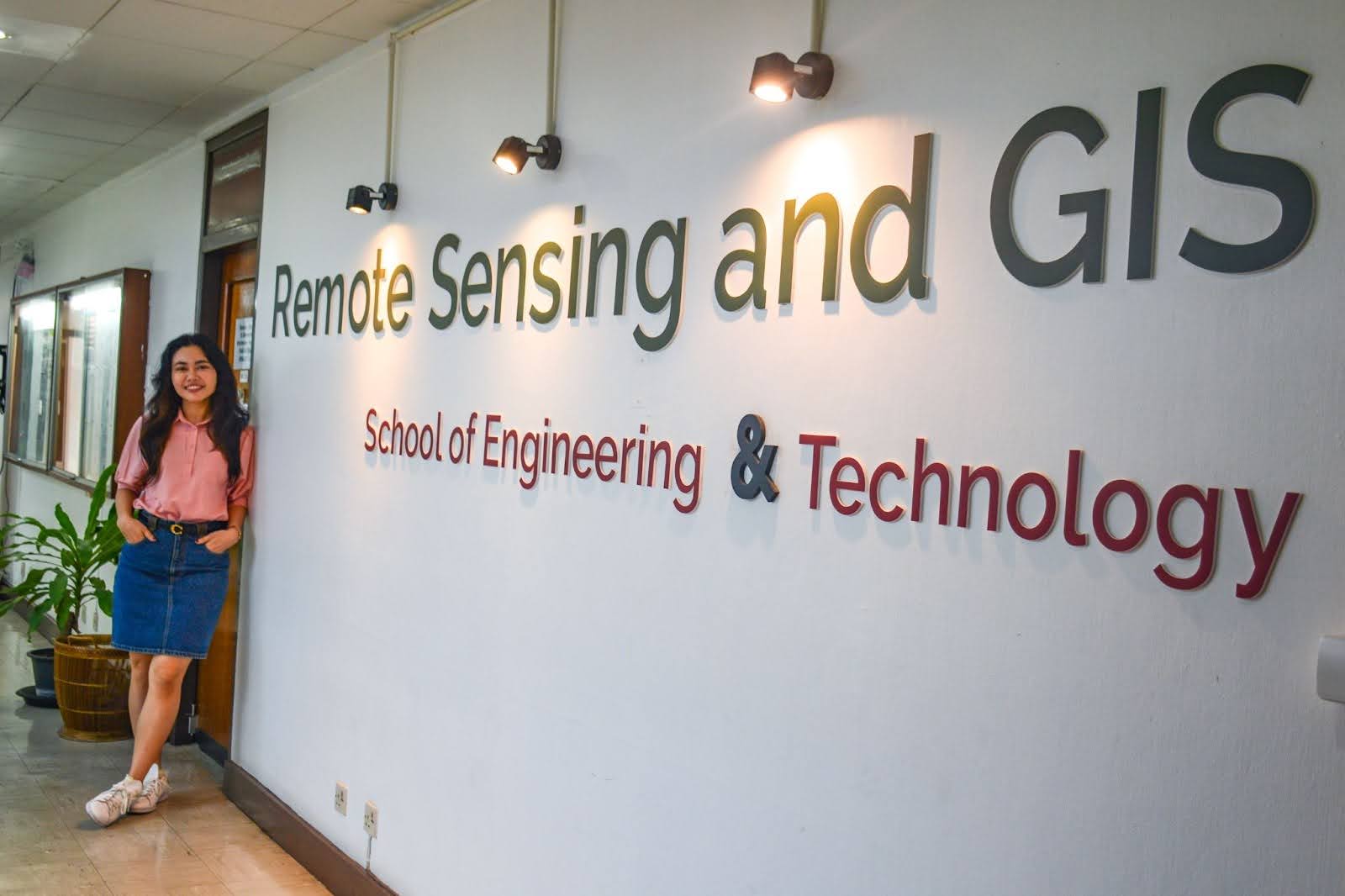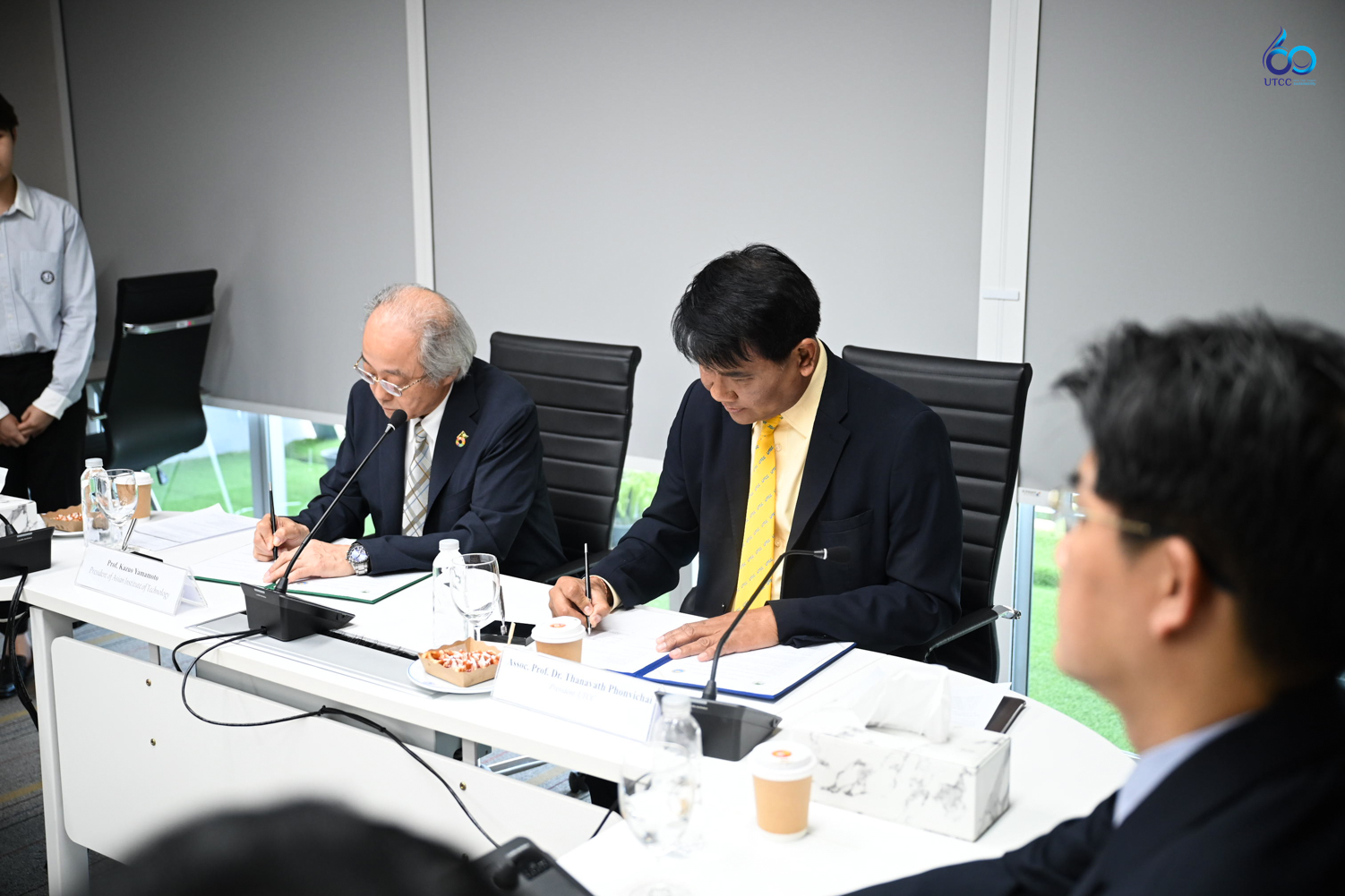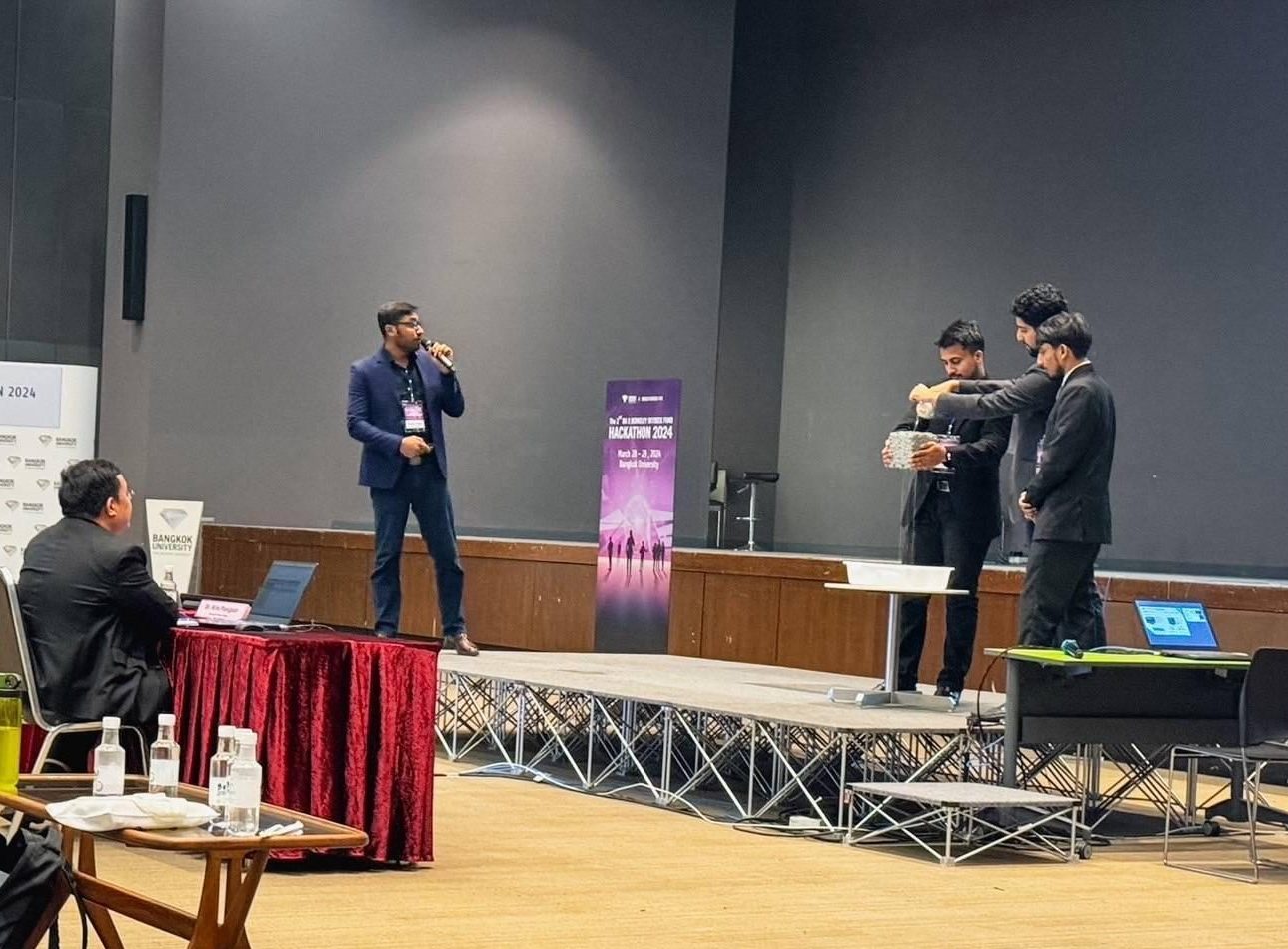Water isn’t just a resource; it’s a symbol of peace and unity. As we mark World Water Day 2024 with the theme “Leveraging Water for Peace,” it’s a moment to recognize water’s crucial role in fostering harmony among communities. The Asian Institute of Technology (AIT) stands firmly behind this cause, spearheading various initiatives aimed at enhancing water security and sanitation. Through its focused centers and initiatives, AIT has been dedicated to ensuring access to clean water and sanitation, understanding their importance in promoting stability and well-being.
AIT has made significant strides in the water and sanitation sectors through a holistic approach. This encompasses innovative academic programs, research endeavors, capacity-building activities, technology dissemination, policy advocacy, and community involvement. By promoting sustainable solutions to water scarcity, pollution, and inadequate sanitation facilities, AIT empowers professionals and communities with the necessary knowledge and skills through training courses and workshops. Collaborations with governmental bodies, non-governmental organizations (NGOs), and industry partners facilitate access to safe water and sanitation services, particularly in marginalized communities. AIT’s policy advocacy efforts aid in evidence-based decision-making, while community engagement fosters local ownership and sustainability. Through research, education, and outreach endeavors, AIT’s programs and centers address water challenges, positioning it as a significant contributor to advancing water security, public health, and environmental sustainability both regionally and globally. AIT’s programs and centers, including the Water Engineering Management program (WEM), NATS Laboratory, Global Water Sanitation Center (GWSC), and Centre for Water and Climate Adaptation (CWCA), actively contribute to achieving Sustainable Development Goals.
The Water Engineering and Management (WEM) program imparts education and training toward an understanding of the complexity of water use and water resources management problems. It offers a balanced curriculum, which covers both the engineering and management aspects of water resource development. Students are trained to acquire knowledge and hands-on practice in tools and techniques to come up with viable and sustainable solutions within the framework of integrated water resources management at the river basin scale.
Water Engineering and Management covers five major areas – Agricultural Water, Coastal Water, Urban Water, Water Resources, and Extreme Events and Risk Management. The courses are designed in such a way that students can specialize according to their interests. Courses on watershed hydrology, hydrodynamics, water resources systems, and concepts in water modeling provide a solid foundation for the advanced courses. The field emphasizes tools and techniques in resource planning and management in addition to laboratory and field practices.
NATS LAB is a regional laboratory specializing in analyzing faecal sludge and high-strength wastewater in Southeast Asia. The laboratory is equipped to test and provide guaranteed results across a wide concentration range, adhering to the international standard ISO/IEC 17025. In addition to the laboratory analysis services, NATS Laboratory also offers training programs aimed at equipping participants with the necessary skills for faecal sludge analysis in decentralized wastewater and on-site sanitation systems. Organizations can invite NATS Laboratory to share best practices and know-how for implementing faecal sludge and wastewater management, as well as setting up appropriate laboratories.


NATS LAB offers training services to personnel interested in enhancing their skills, including both Thai and foreign participants currently working in laboratories. Participants in these programs gain exposure to academic content, practical application techniques, and opportunities for knowledge exchange. Currently, NATS LAB offers comprehensive training in three key areas: chemistry, physics, and microbiology. Our competent team and experienced speakers focus on facilitating knowledge exchange and idea-sharing among participants to enhance the learning experience.
The Global Water & Sanitation Center (GWSC), established in 2022 through a partnership between the Bill & Melinda Gates Foundation (BMGF) and AIT, is making significant strides in advancing sanitation solutions across South & Southeast Asia and beyond. GWSC is systematically designed to deliver different services to the government, international financial institutions, and development partners through its seven hubs. This segment highlights three of these hubs:


Transformative Technologies Commercialization (TTC) Hub is designed to bridge the gap between technology providers and the markets of transformative sanitation technologies in Asia. Transformative sanitation technology offers a revolutionary approach to conventional sanitation processes. It treats wastewater and fecal matter and converts them into valuable resources such as nutrients, energy, and clean water. This technology utilizes various processes, such as biological, chemical, physical, and thermal methods to ensure contaminant-free, reusable water. This initiative aims to increase the deployment of these transformative technologies, such as Reinvented Toilet Technology and Omni Processor, whenever appropriate, thus accelerating access to clean, safe, inclusive, and sustainable sanitation solutions. Delve deeper into the transformative sanitation technologies and explore real-world applications implemented by GWSC. Read more
Data Innovation Hub (DI-Hub) aims to transform the landscape of public services in the region by instilling data-driven evidence-based decision-making for sanitation-related projects. We collaborate with academia, partners across region and broad stakeholders including governments to foster data innovation in supporting Citywide Inclusive Sanitation planning. Currently, DI-Hub supports the Government of Bangladesh’s flagship Strengthening of Public Data Systems programme aiming to catalyze SDG 6.2 outcomes. This involves establishing a centralized & distributed Sanitation Data Command Center, housing an integrated ecosystem of national and sub-national data systems including National Sanitation Dashboard and Integrated City/Municipal Information System for planning, effective service delivery and monitoring & evaluation. Learn more about DI-Hub’s collaborative work with the Government of Bangladesh to develop a robust data infrastructure for their sanitation initiatives.
Dr. Kavinda Gunasekara, COO of GWSC, emphasized the commitment of GWSC’s Data Innovation Hub (DI Hub) to reshape public service provision in the region. He stated, “ DI Hub is dedicated to transforming the landscape of public services in the region by promoting inclusivity and instilling data-driven evidence-based decision-making. We collaborate with academia, partners across region and broad stakeholders including governments to foster data innovation and support approaches. We are moving towards development and support for digital public infrastructure in multiple sectors as a proactive approach to harness the transformative potential of technology to build smarter, more resilient, and inclusive communities while advancing the goals of sustainable development and social progress.”
Technical Assistance Hub (TA-Hub) provides technical advisory support to governments, international financing institutes (IFIs), and other development partners in planning, designing, scaling, and implementing Citywide Inclusive Sanitation (CWIS). Furthermore, the TA Hub is also conducting evidence-based research and practice to promote inclusive and sustainable sanitation in Asia. One example is the Tripura Urban and Tourism Development Project in India. Here, the Asian Development Bank (ADB) is providing a loan to improve municipal infrastructure and public services in select towns of Tripura. Read more on TA-Hub’s diverse technical assistance for CWIS implementation, from feasibility studies to comprehensive NSS planning.
Ms. Isha Basyal, Deputy COO of GWSC , emphasized the profound significance of the theme “Water for Peace. She stated, “The theme ‘Water for Peace’ holds profound meaning. It echoes the principle of adaptability and collaboration, virtues just as essential for tackling WASH challenges as the resource itself. Just like water finds its way through obstacles, so too must we find collaborative solutions that prioritize the collective good. By fostering interconnectedness and a nurturing approach, we can ensure water becomes a symbol of peace and not conflict. Let’s harness water’s resilience as inspiration to achieve lasting solutions and shared prosperity across communities’.
Centre for Water and Climate Adaptation (CWCA)’s mission encompasses generating knowledge and skills through research and development to address current and future water and climate crises. CWCA aims to become a central institution for disseminating knowledge of sustainable and resilient water management, raising awareness among planners and policymakers, developing innovative solutions, and fostering collaboration with regional and international institutions.
CWCA emphasizes three core pillars aligned with AIT’s competencies: research, capacity building, and consultancy. Additionally, it hosts seminars, conferences, and professional events, facilitating industry placements for students to enhance their learning and practical experience in water resources management. Moreover, CWCA’s focus on five core themes, covering aspects from improving water resources management to enhancing governance, reflects its dedication to comprehensively addressing water security challenges.

Some notable achievements of the CWCA include impactful projects and training programs aimed at addressing water security and climate change adaptation. The project Water Resources Risk and Countermeasure for Sustainable development under Changing Environment in the Pan Qinghai Tibetan Plateau, funded by the Alliance of International Science Organizations aims to enhance climate change understanding, resilience, and disaster preparedness, through international collaboration among institutions in Thailand, China, Tajikistan, Kyrgyz Republic, and Pakistan. Another significant initiative is the water modeling for climate resilience in Lao PDR, led by Western Sydney University and partners, funded by the Australian Government. It aims to build local capacity for resilient water management in the face of climate change. Additionally, the CWCA’s organization of WATSAT Training Workshops across India and Nepal seeks to empower future water professionals with tools to assess urban water security independently. Moreover, the Joint Master’s program on “Water Security and Global Change” exemplifies the CWCA’s commitment to cultivating future environmental leaders through an integrated academic approach involving renowned institutions worldwide.
As we move towards a future where everyone can access clean water and proper sanitation, AIT remains steadfast in its commitment to this vital cause. Our continuous effort to innovate, educate, and collaborate stands as a testament to our dedication. AIT is not just responding to the current challenges; we are proactively working towards a future where water brings peace and prosperity to all communities.








